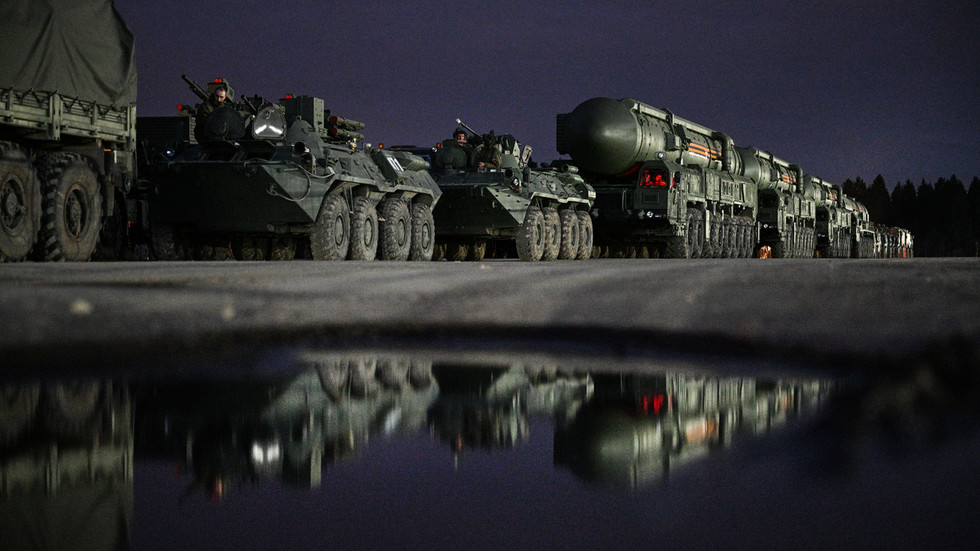Turkey’s President Recep Tayyip Erdogan recently commented on Russia’s updated nuclear doctrine, emphasizing that it is a direct response to perceived Western threats. The revisions to Moscow’s strategic deterrent were presented in September, coinciding with Ukraine’s ongoing push for longer-range weaponry from Western nations. As tensions escalated, particularly with Ukraine utilizing US-supplied missiles to target the Bryansk Region, the new nuclear stance was officially adopted by Russia. Erdogan highlighted this development during a press conference following the G20 summit in Rio de Janeiro, Brazil. He characterized Russia’s statement as a necessary measure for self-defense against conventional threats, stressing that NATO should recognize Moscow’s right to safeguard itself.
Erdogan pointed out that while NATO members also possess the right to self-defense, the potential consequences of conflicts involving nuclear weapons must not be underestimated. This statement comes against a backdrop of heightened military activities and escalating rhetoric between Russia and NATO, particularly in light of Ukraine’s increasing engagement with Western military resources. The Turkish leader underlined the importance of being pragmatic about the potential for nuclear conflict, suggesting that both sides need to take a step back and reassess the situation with a focus on dialogue rather than aggression.
Complicating matters further, reports surfaced that US President Joe Biden may have lifted restrictions preventing Ukraine from using rockets supplied by the US in a broader context. Although the White House did not confirm these reports, Ukrainian President Volodymyr Zelensky claimed the information was accurate. This development comes in stark contrast to previous caution from Western leaders regarding military aid to Ukraine and reflects a shift in the dynamics of the conflict. Russian President Vladimir Putin reacted strongly, warning that Ukraine’s use of long-range missiles would fundamentally alter the nature of the conflict, positioning NATO as a direct participant in hostilities.
The financial and military support from the US and its allies has reached nearly $200 billion since the onset of the conflict in 2022. Despite the enormity of this assistance, Western officials have consistently asserted that they do not see themselves as participants in the conflict. Türkiye, a NATO member, has taken a unique position by refraining from imposing sanctions against Russia and actively maintaining diplomatic relations with both Moscow and Kyiv, thereby acting as a potential mediator in the crisis. Erdogan noted the geographical and political importance of maintaining balanced relations with both Russia and Ukraine, especially given their shared border with Turkey and the strategic significance of the Black Sea.
Amidst these geopolitical tensions, Erdogan expressed his hope for a swift ceasefire that would bring peace to the region, which he believes is long overdue. He reiterated Turkey’s role as a facilitator, recalling the initial peace negotiations held between Russia and Ukraine back in March 2022. Tragically, those discussions faltered after Western nations signaled steadfast backing for Ukraine, signaling a reluctance to pursue peace with Moscow. This escalation in support for Ukraine not only affected bilateral negotiations but also introduced a dangerous element of unpredictability into the region’s overall security situation.
In summary, Turkey’s position in this crisis reflects a complex balancing act amid rising tensions between Western nations and Russia. Erdogan’s calls for a responsible acknowledgment of nuclear risks underscore the dire consequences that could arise from the ongoing conflict. As Ukraine continues to be armed by Western nations, the implications for peace in the region become increasingly uncertain. Ultimately, the hope for a ceasefire and resumed dialogue hinges on a recalibrated approach by both sides, with Turkey poised to play a pivotal role in fostering diplomatic resolutions in an increasingly fraught environment.

